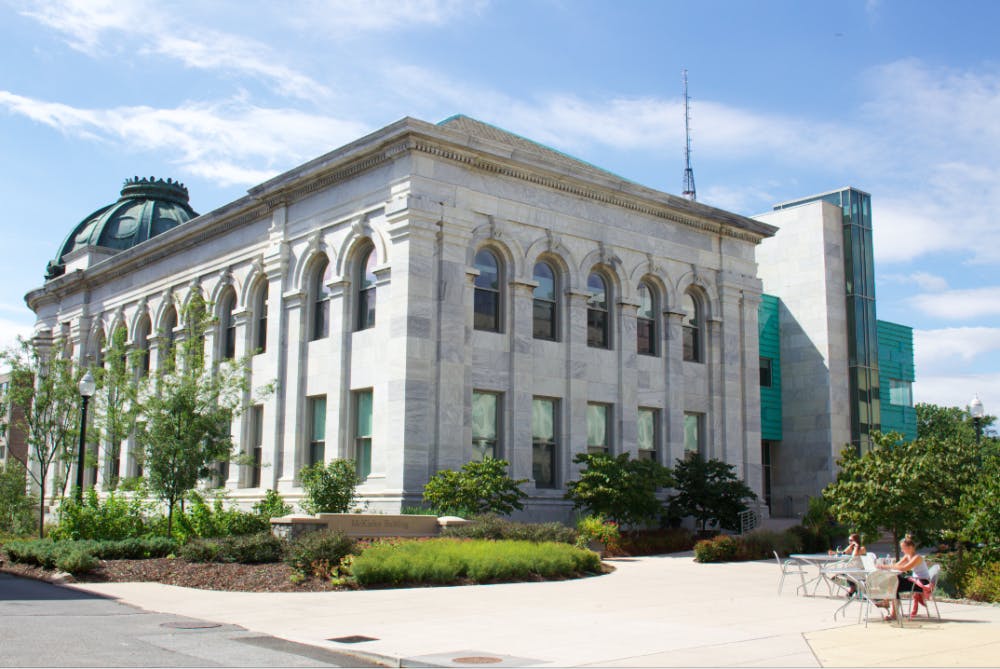In the wake of looming global environmental challenges, AU is providing students and faculty with the resources to create and share important environmental messages through a powerful medium: film.
The Center for Environmental Filmmaking (CEF) brings together diverse and inclusive media-makers that are committed to sharing powerful stories that drive engagement in critical environmental issues, according to the center’s site.
“There is no doubt that climate change is wreaking havoc on our earth, threatening the health of our planet and endangering lives, particularly in poorer communities,” said Maggie Stogner, executive director for the Center of Environmental Filmmaking, in an interview. “The ultimate challenge is engaging and motivating policymakers and citizens to take urgent action now.”
The center connects students with environmental leaders, scientists and other inspirational storytellers. When it comes to environmental films in particular, filmmakers need to balance feeling the urgency of the issue and leading viewers to a place of hope and action, Stogner said.
“Compelling visual storytelling — film, digital media [and] virtual and augmented reality — can immerse audiences in a subject, create an emotional connection and make people really care,” Stogner said. “Some films enlighten, others deepen our commitment and motivate us to action, and the best will stay with us for years to come,” Stogner said.
In March, the center hosted a week of events in collaboration with the D.C. Environmental Film Festival. Events included the world premiere of professor Larry Engel’s film “Who Speaks for Nature?”, as well as Bernardo Ruiz’s “Harvest Season” and the U.S. premiere of Alison Reid’s “The Woman Who Loves Giraffes.”
On March 23, the center hosted the “Diversity and Impact Filmmaker Panel,” which provided insight into the power of environmental films. Scientist and National Geographic correspondent Mireya Mayor, environmental film producer Vanina Harel and filmmakers Byron Hurt and Kalyanee Mam discussed their work as well as the challenges they face in their fields.
Harel’s short documentary “Vey nou Lagon” follows a Mauritian traditional artisanal fisherman and his family. It tells the story of the Mauritian lagoons and the declining state of the ocean as a result of climate change.
During the panel, she explained how screening her film in a local community near the film site fascinated the children who watched it. Filmmaking is her way of “bring[ing] the ocean to them,” she said.
“They were like, ‘I’ve never seen this [ocean] before, it’s so colorful, it’s so beautiful,’” Harel said. “I realized that our ocean today is so degraded and people don’t really have access to the pristine places that are left, so they don’t really have that connection with the ocean.”
Mam discussed her environmental and social documentary, “A River Changes Course,” which follows three Cambodian families as rapid development impacts their surrounding environment, forcing them to face hard choices and struggle to maintain traditional ways of life.
“We’ve really lost our way,” Mam said. “We’ve lost not only our land, but our connection to each other. And we’ve lost a perspective of our land that we used to have, and that perspective is a consideration of our land as something sacred...and we view it now as just a commodity.”
The success of the film festival precedes the future opportunities for the center. It has a “Classroom in the Wild” 4-day program in June, where members will head to the remote island of Isla de la Mona in Puerto Rico, and create films about science and wildlife.
The center continues to expand its partnerships around the world by working with nonprofits, NGOs, and media companies to provide learning opportunities for students.
“It takes communities to effect change,” Stogner said.
This article originally appeared in The Eagle's April 2019 print edition.





